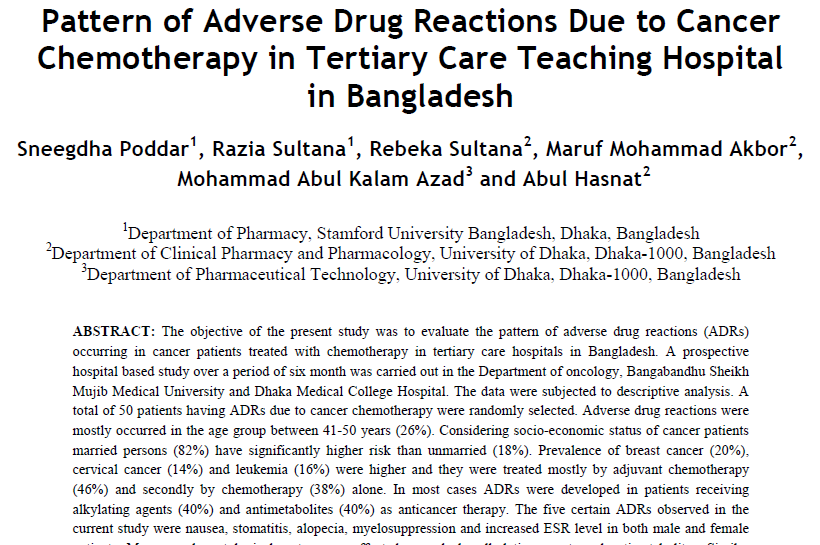Pattern of Adverse Drug Reactions Due to Cancer Chemotherapy in Tertiary Care Teaching Hospital in Bangladesh
The objective of the present study was to evaluate the pattern of adverse drug reactions (ADRs) occurring in cancer patients treated with chemotherapy in tertiary care hospitals in Bangladesh. A prospective hospital based study over a period of six month was carried out in the Department of oncology, Bangabandhu Sheikh Mujib Medical University and Dhaka Medical College Hospital. The data were subjected to descriptive analysis. A total of 50 patients having ADRs due to cancer chemotherapy were randomly selected. Adverse drug reactions were mostly occurred in the age group between 41-50 years (26%). Considering socio-economic status of cancer patients married persons (82%) have significantly higher risk than unmarried (18%). Prevalence of breast cancer (20%), cervical cancer (14%) and leukemia (16%) were higher and they were treated mostly by adjuvant chemotherapy (46%) and secondly by chemotherapy (38%) alone. In most cases ADRs were developed in patients receiving alkylating agents (40%) and antimetabolites (40%) as anticancer therapy. The five certain ADRs observed in the current study were nausea, stomatitis, alopecia, myelosuppression and increased ESR level in both male and female patients. Moreover, hematological system was affected severely by alkylating agents and antimetabolites. Similar studies covering more patients from different regions are needed to validate our findings.
Full text article available at:
https://www.banglajol.info/index.php/JPharma/article/viewFile/5330/4157


